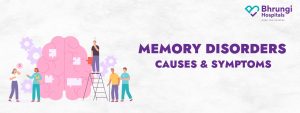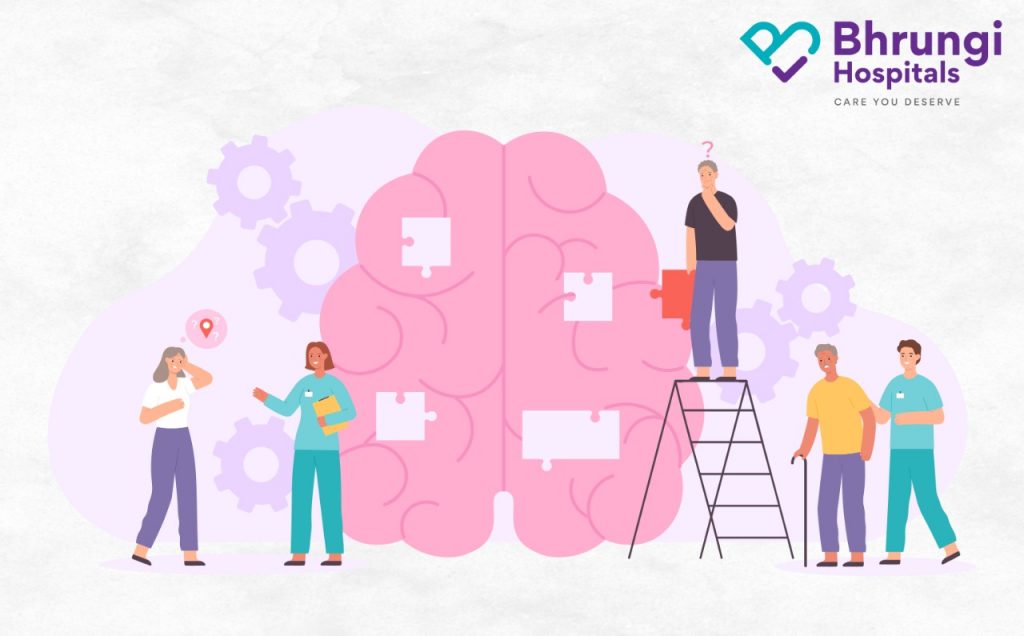
The human body is a marvel in and of itself. Its incredible functions, which are complex yet unexpected systems, can even confound doctors and scientists. The neurological system of the human body is one such system. Our body, which gets made up of billions of nerve cells or neurons, performs various voluntary and involuntary activities to assist us in our daily activities.
However, if a person’s neurological system is compromised, they may have difficulty moving, speaking, swallowing, breathing, or learning. According to the doctors, there are more than 600 neurologic diseases, including Huntington’s disease, migraines, degenerative diseases, epilepsy, brain tumors, and meningitis, to name a few.
When certain brain parts are damaged, it becomes impossible or difficult to store, retain, or recall memories. Memory disorders impact cognitive abilities and social behaviors, affecting language, problem-solving skills, and the ability to complete simple tasks. They can be moderate, even, or severe, and they can develop gradually or rapidly.
The following are examples of memory disorders:
- Alzheimer’s disease. The most common type of dementia get caused by changes in the brain’s nerves, which become tangled, form plaques, and lose their connections to other nerves. Alzheimer’s disease is a disease that progressively worsens over time.
- Vascular dementia. Brain tissue suffers from reduced or blocked blood flow. This is the most common type of dementia after Alzheimer’s disease.
- Dementia with Lewy bodies. Dementia symptoms get caused by abnormal protein deposits called Lewy bodies that form as brain tissue breaks down.
- Mild cognitive impairment. Changes or a decline in your memory, language, thinking, or you or your family may notice judgment, but this does not interfere with your daily activities.
Distribution of cause of memory loss in 500 patients seen in one clinic in India
| Age | AD | DLB | VAD | MCI | ||||
| M | F | M | F | M | F | M | F | |
| <50 | 1 | 2 | 0 | 0 | 2 | 0 | 0 | 2 |
| 51–60 | 2 | 0 | 2 | 1 | 2 | 1 | 3 | 4 |
| 61–70 | 3 | 4 | 11 | 10 | 7 | 2 | 18 | 8 |
| 71–80 | 6 | 6 | 29 | 18 | 12 | 9 | 20 | 23 |
| >81 | 5 | 0 | 27 | 24 | 6 | 2 | 12 | 13 |
| Total by gender | 17 | 12 | 69 | 53 | 29 | 14 | 53 | 50 |
| Total (%) by disease | 29 (5.8) | 122 (24.4) | 43 (8.6) |
103 (20.6) |
||||
AD, Alzheimer’s disease; DLB, dementia with Lewy bodies; VaD, vascular dementia; MCI, mild cognitive impairment.
Memory Disorder Symptoms
As Alzheimer’s disease and other conditions progress, memory problems and dementia tend to appear in stages. Symptoms, on the other hand, could appear out of nowhere.
Symptoms may include:
- Confusion
- Inability to communicate
- Inability to learn new things
- Language problems
- Memory loss
- Paranoia
- Repeating questions
- Trouble managing money or paying bills
What is Huntington’s?
Huntington’s disease is a type of neurological disorder. A gene mutation causes this hereditary disease. As a result, toxic proteins clump together in the brain, causing damage and neurological symptoms.
What is Parkinson’s disease?
A neurological disorder in which you lose control of your movements. The disease usually starts slowly and gradually worsens over time. For example, if you have Parkinson’s disease, you may experience tremors, muscle stiffness, difficulty walking, and maintaining your balance and coordination.
Stroke
A stroke occurs when the blood supply to a part of the brain is interrupted or reduced, depriving brain tissue of oxygen and nutrients. As a result, within minutes, brain cells begin to die. A stroke is a medical emergency that requires immediate attention. If the action gets taken early, brain damage and other complications can be avoided. The good news is that stroke deaths in the United States have decreased dramatically in recent years. Effective treatments can also help to prevent stroke disability.
Our multidisciplinary neurosurgery team at Bhrungi is equipped with cutting-edge technology to treat a wide range of brain and spine conditions, including tumors and lesions. In addition, our Best Neurologist in Hyderabad is on call 24 hours a day, seven days a week, to treat trauma, car accidents involving head and spinal cord injuries, and neurological emergencies
Clarifications to some doubts
What is the most common type of memory problem?
Alzheimer’s. The most common type of dementia is caused by changes in brain nerves that become tangled, form plaques, and lose connections to other nerves. Alzheimer’s disease worsens with time.
What are examples of memory disorders?
- Alzheimer’s disease.
- Dementia with Lewy Bodies (DLB)
- Frontotemporal Dementia (FTD)
- HIV Dementia.
- Mild Cognitive Impairment (MCI)
- Normal Pressure Hydrocephalus (NPH)
- Vascular Dementia.
How many people in India have dementia?
More than 4 million people in India have dementia. At least 44 million people worldwide have dementia, making the disease a global health crisis that must be addressed.
We, at Bhrungi Hospital, believe in an approach that ensures the right care for the patient at the very first time itself in terms of diagnosis, therapies and outcomes for Brain, spine and nervous system disorders. In order to successfully accomplish this, accurate diagnosis plays a key role. Our neurologists work closely with radiologists who are trained in the use of innovative and highly advanced imaging technologies, to precisely pinpoint the cause of the signs and symptoms being displayed by the patient. The team then evaluates the results, assessing the problem from all perspectives, before coming up with a comprehensive, tailor-made treatment plan that perfectly meets the patient’s needs.









